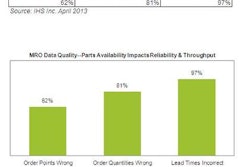This article first appeared in Industrial Distribution's May/June 2013 Issue. To view it in it's original format, please click here.
Arbitration clauses and the process of arbitration are not always what distributors expect them to be — private, speedy, and less expensive than litigation. A recent case demonstrated how, in some circumstances, arbitration is the right tool for supplier-distributor disputes.
The case was a wrongful termination with a number of ancillary claims brought by a terminated distributorship against a supplier, the most significant being a claim that the distributorship was actually a franchise under state law. If the franchise claim held up, the terminated distributor could have been entitled to protections from termination beyond those in the underlying Distribution Agreement, plus additional damages and fees. The initial amount sought was over $7 million, which was whittled down to roughly $2 million by the time of hearing. After a week-long arbitration trial and briefing, a panel of arbitrators issued an award for the supplier of roughly $500,000 — denying the distributor any relief. Here is why the arbitration process worked so well:
A Three Member Panel: Some critics fault arbitration because arbitrators are often perceived to do simply what they believe is just, not following the law and/or possibly ignoring important facts. Some believe that this flows from the fact that arbitrators do not have to follow the rules of evidence, and often can admit evidence that would never be seen in court. A three-member panel of arbitrators requires that a majority of the arbitrators concur in the decision, so that the risk of a no-win “compromise decision” is reduced. Although one arbitrator believed that the terminated distributor should have prevailed on certain issues, the majority sided with the supplier. The three-member panel was also required (as part of the contract’s arbitration provision) to have knowledge of the industry. The experienced panel collectively maintained a strong governance of the process. The lesson: seriously consider requiring that more than one arbitrator, experienced in your industry, hear your dispute, and do so at the time of contract formation.
A Reasoned Award: Unless provided for in the original contract’s arbitration clause, arbitrators are not always required to issue written opinions or explain their decisions. If an award is issued against you as a party in arbitration, it can be virtually impossible to challenge it in court, leaving little recourse from a poorly reasoned decision of an arbitrator. In the foregoing example, the panel agreed to provide the parties with a reasoned award — akin to a written judicial opinion. The parties received a clear-cut rationale for the finding against the terminated distributor, which makes an attack on appeal unlikely. The lesson: do what you can to obtain a reasoned award.
Privacy: Proponents of arbitration often cite privacy as a significant benefit, as in the case example. The underlying case involved a number of what the supplier believed were exaggerated, unsubstantiated claims, most of which were refuted by multiple witnesses. In a small industry, word can travel fast, but not always accurately. While public knowledge of a court ruling in favor of the supplier might initially sound desirable, the terminated distributor had no real case, recklessly sued the supplier, and lost — and the supplier preferred that the misrepresentations stayed private. The lesson: privacy in dispute resolution has its advantages, and can be valuable — certainly worth your share of the cost of the arbitration process.
Costs and Speed: Critics of arbitration say that it is not the inexpensive, speedy dispute resolution procedure that its supporters claim, especially considering the costs to have arbitrator(s) hear a case, conduct all pre-hearing matters, consider the legal briefs, and rule on motions filed by the parties. These costs can still prove to be a bargain: cutting out almost all pre-trial discovery can save arbitrating parties as much as $100,000 in trial expenses.
Further, a good arbitration panel can dispose of a case quickly. In our case example, the claim was filed an and award issued in less than 18 months. In court, the case would likely have stretched to five years or longer. Lesson: Even though its compressed schedule imposes significant costs, the process of arbitration can still be more expedient and less expensive.
No Discovery; No Big Deal: Arbitration critics suggest that the ability to (1) command and subpoena documents from third parties, (2) subpoena witnesses for trial and deposition testimony, and (3) to preserve trial testimony by way of evidence depositions are valuable rights which are extremely limited in arbitration. However, there is often more than ample evidence for each side to sufficiently present their respective cases. While parties to an arbitration agreement can agree to limit or expand each other’s discovery rights (such as specifying the deposition of no more than three party agents), the absence of such rights in the case example did not prejudice either party. Here again, the lesson is that a well-managed arbitration can make a great deal of business sense.
Arbitration is often the better option for resolving disputes, despite its critics. The right mixture of ingredients — a panel experienced in the relevant industry, a reasoned award, and seasoned arbitrators — can overcome most reservations for distributors with an arbitration provision.
Distributors who wish to discuss arbitration issues can contact Fred Mendelsohn at 312-840-7004 or [email protected].























